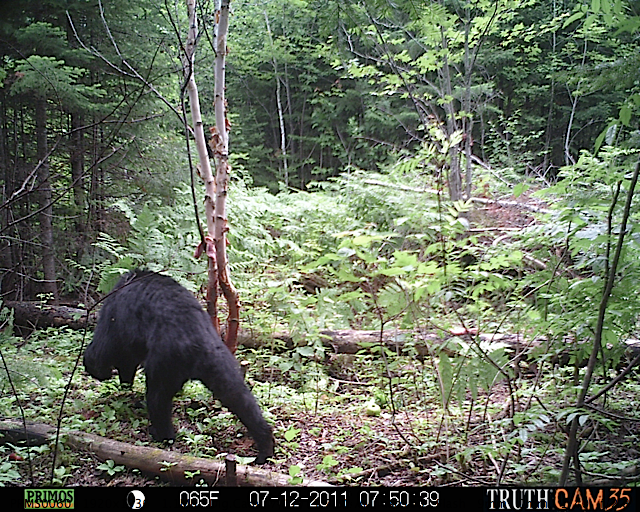
Black bears of all ages and sex rub their scent on marking trees, wooden sign posts, utility poles, and fence posts, but most of the marking is done by mature males during mating season, which runs from May through August in Maine. Bears will rub their shoulders, neck and crown on the tree, and may also claw the bark of the tree or bite it. As you can see, the small birch tree that is the focus of this Maine black bear has had its bark torn up to a significant height. Claw marks are generally superficial but bark is easily stripped from a birch tree. Bite usually leave horizontal marks that resemble a dot and a dash, a result of the upper and lower canine teeth coming together. Bites are often deep enough that bits of bark and wood are pulled out. Marking trees are found along trails, and two well-traveled animal trails intersect in this clearing. Marking trees usually sit by themselves, with little brush or ground vegetation to prevent bears from approaching them, and they often lean slightly toward the trail, as this one does. I recognized this as a marking tree before I first set a camera up here. Bears usually bite low on the tree, while they will sometimes leave claw marks as high as they can reach. As you can see here, claw marks extend far enough that the bear would have had to stand on its back legs, which they are quite capable of doing, even without support.